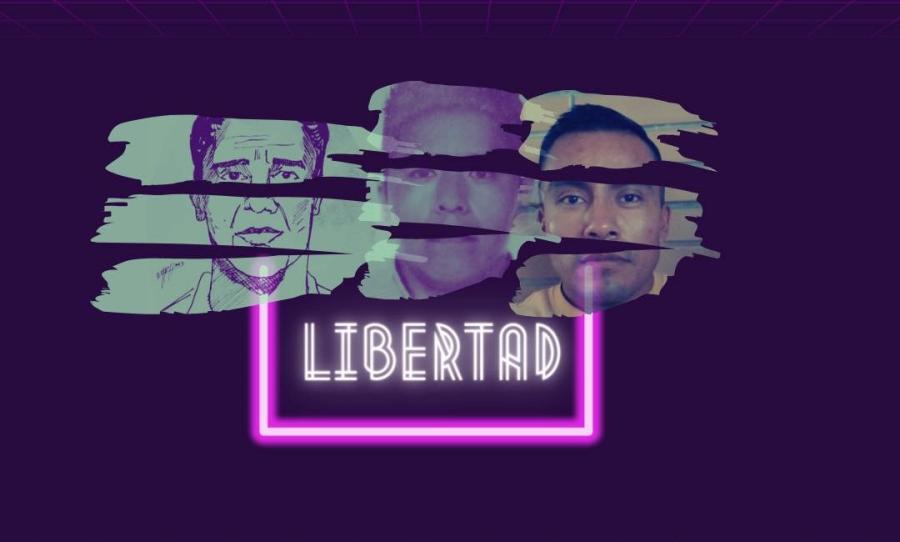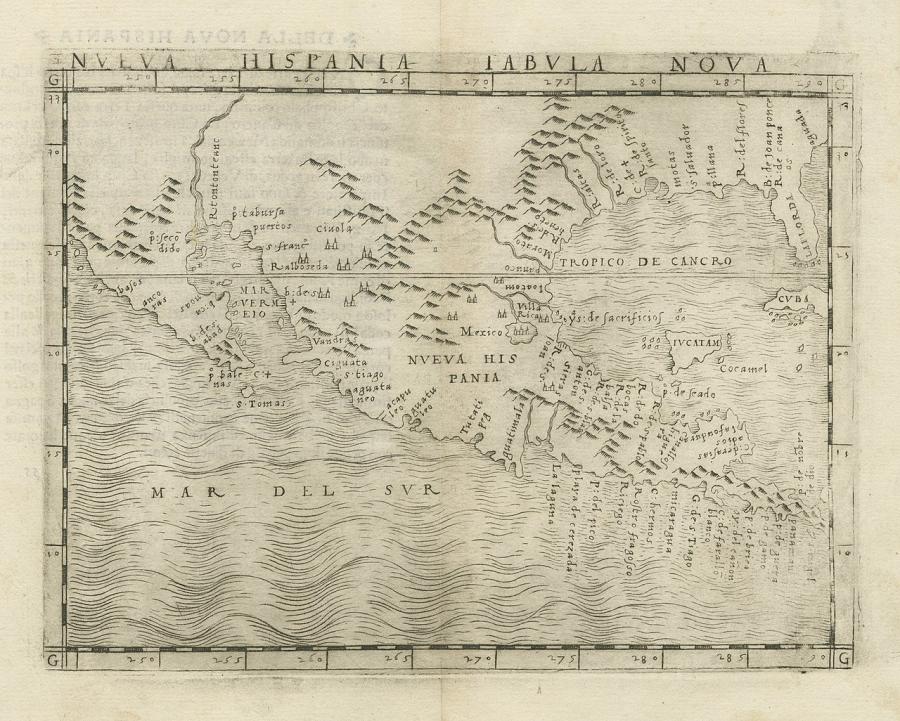
By Natalia Sánchez González
Since 2017, Pautas para Pensar en Mi Lengua (Guidelines for Thinking in My Language) has sought to help students in Indigenous communities in Chiapas and the Yucatán, Mexico, become more curious about their environment and communities. Through this program, children and youth are encouraged to think and imagine to learn and discover from in their own Indigenous languages, recognizing the existing knowledge in their communities. The learning objectives of the project are conducted in the main Indigenous languages spoken in Chiapas: Tseltal, Tsotsil, Ch'ol, Zoque, and Tojolabal, and Yucatan Maya.
Although we were working with a methodology based on Learning Experiences, the COVID-19 pandemic forced us to learn how to operate virtually. Without giving up our objectives, we created an educational alternative for teacher training through a hybrid model of in-person and virtual education. In a matter of months, we devised a way to provide children and youth from Indigenous communities with opportunities to learn and think in their own language. This is how the educational radio series, "Descubro y aprendo" (I Discover and Learn); "Aprendo de los Frutos" (I Learn from the Fruits); "¿Qué nos dicen?" (What Are They Telling Us?); and "De aquí soy" (I Am from Here), which are currently in production, came about. Each of them tells stories of adventures had by characters such as a squirrel, snail, and a tree in Tseltal, Tsotsil, Ch'ol, Tojol-Ab'al, Zoque, Mayan, and Spanish. Linked to these stories, we develop activities that provide a space to think about and understand the phenomena of nature in the students’ native languages to develop their linguistic skills.
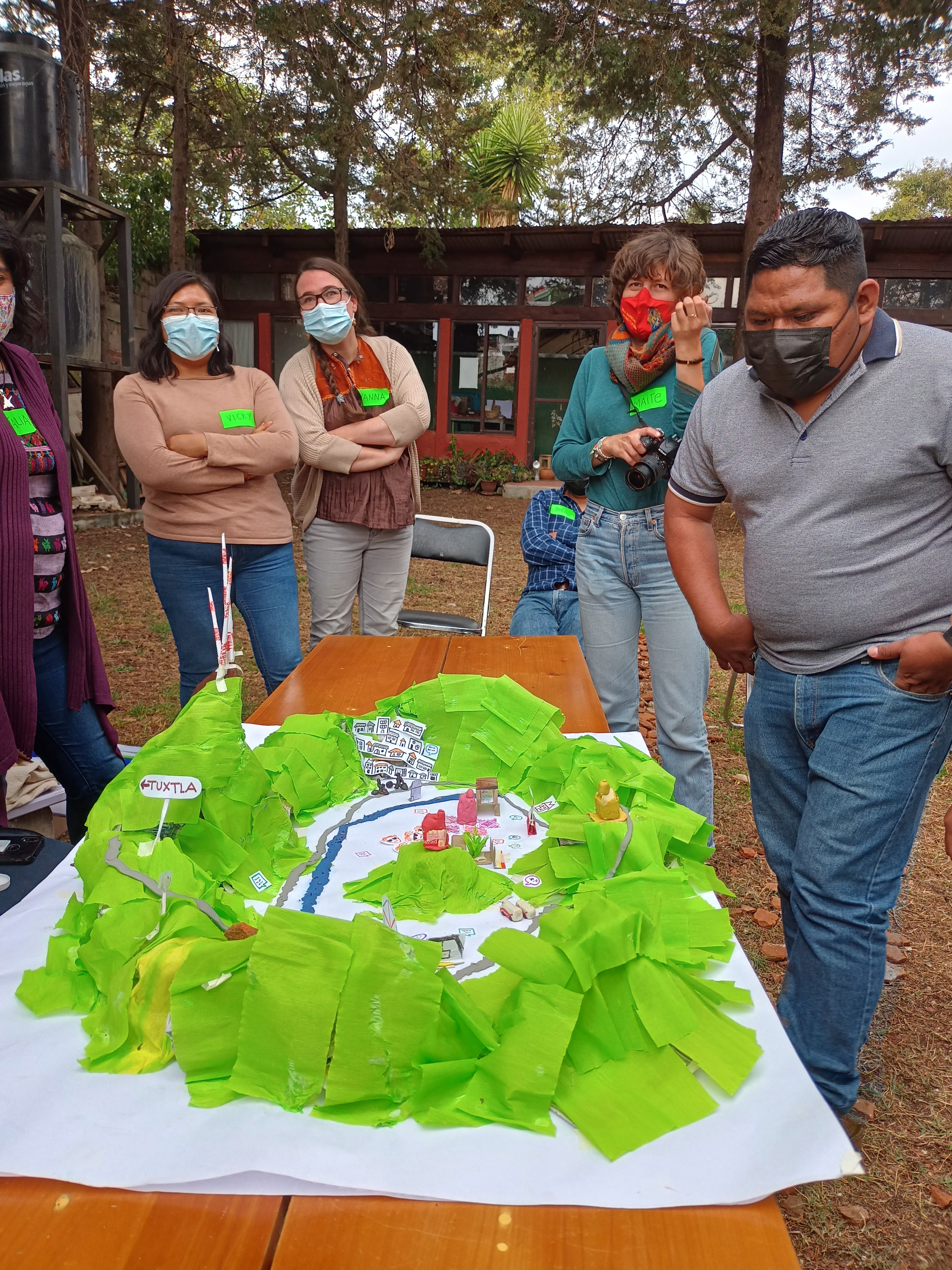
The radio and distance education scenario made it clear the need to create training to strengthen our Indigenous languages while producing culturally relevant radio content. Linking radio with education and sharing experiences with other Mexican radio stations enables us to raise awareness of our diverse cultures and strengthen our commitment to revitalizing our languages.
Thanks to the financial support of Cultural Survival through the Indigenous Community Media Fund, we organized the training workshop, "Radio with Children: A Tool for the Advancement of Indigenous Peoples," which aimed to help participants experience the intercultural strategies developed by the Cusco, Peru-based project, Radio with Andean Girls and Boys of the Pukllasunchis Association, in South Andean public schools. The workshop was held March 10-12, 2022 in San Cristóbal de las Casas, Chiapas, and was attended by representatives of Radio Yúuyum (Yucatán), Tseltal Bachajón Comunicación, Ach' Lequil C'op, and the team of the Guidelines for Thinking in My Language Project (Nenemi Paxia A.C.), that means “walking towards peace”.
The activities developed for the workshop identified the central aspects of an intercultural educational approach that uses radio in the school curriculum to promote cultural heritage, languages, and traditional knowledge in the communities, as well as to identify intercultural educational strategies that could be incorporated into the territorial areas of the participants.
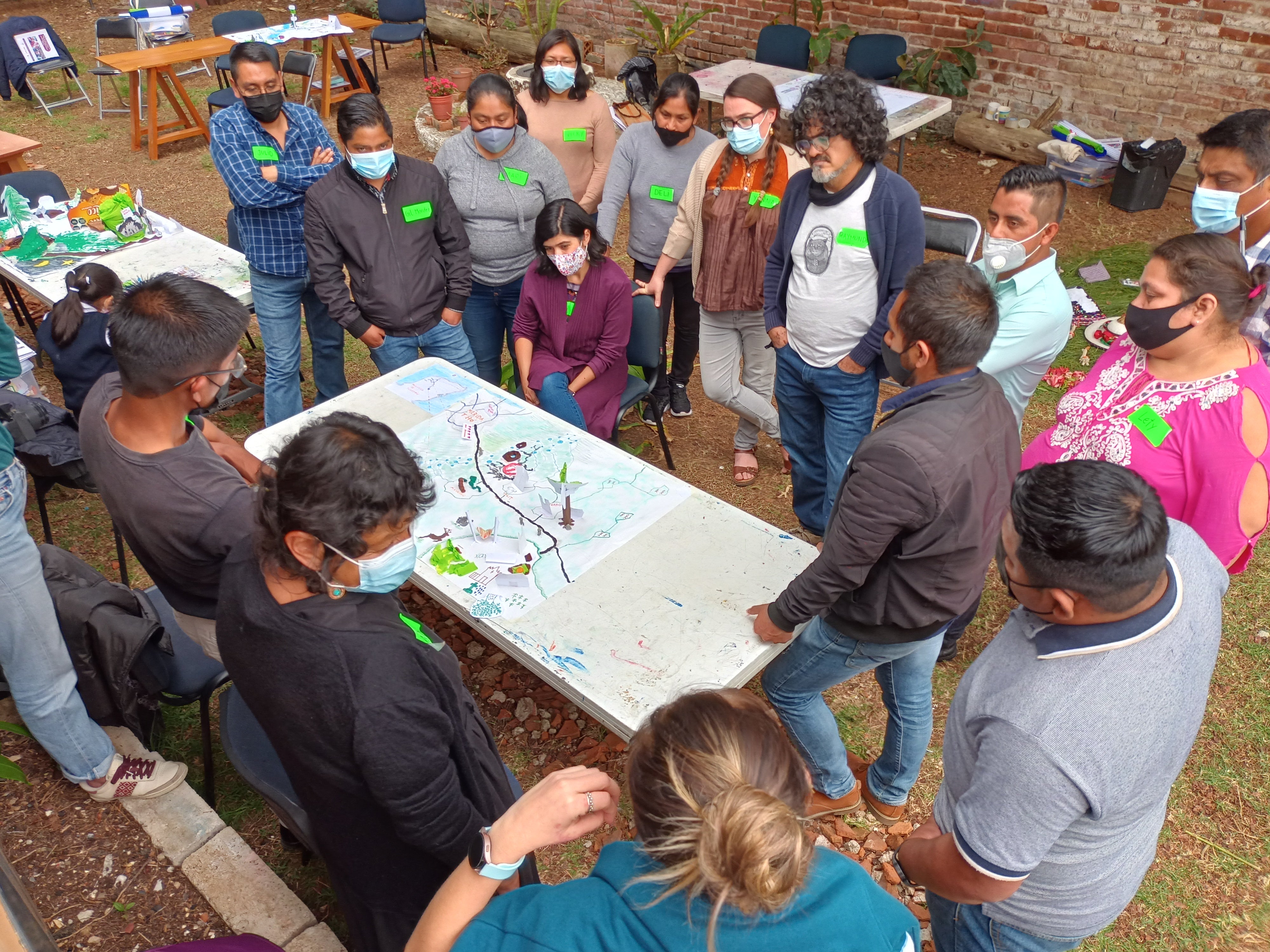
The workshop highlighted the importance of Indigenous communities producing radio programs to talk about what is their own; about how they live, in their own languages, and from the point of view of what interests them, to generate knowledge and dialogue and elevate local and land-based narratives so communities feel represented and seen. Participants imagined how they could strengthen their radio experiences.
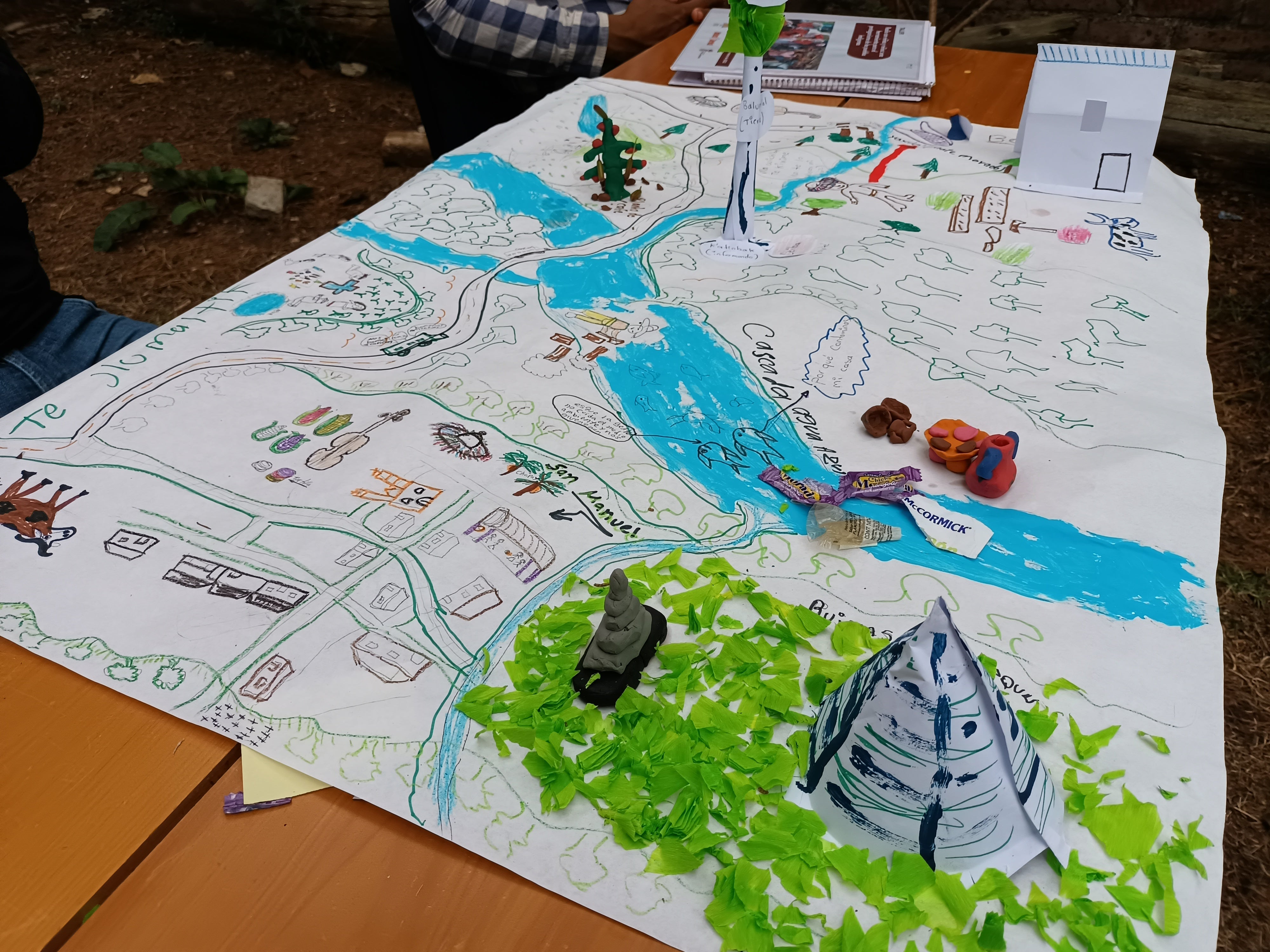
The following are a few of the reflections participants shared via written or recorded testimonials at the end of the workshop:
“It is not about bringing something that we consider important, but about students, children, and the community sharing their knowledge, their wisdom, their way of life. Children are protagonists from their territory when they are given the freedom of how they want to share what they do.” --Antonio J.
“Changing the perspective of certain things completely opens the world; at the same time, this allows things that seemed to be established to be redefined under the voice and eyes of the people, and I believe that this is extremely valuable. Working with, by, and through the children leaves open the possibility of changing the world one step at a time, where the people make themselves present.” --Sasil S.
“It is important to look at the community and all the learning, the knowledge, the cosmovisions they posses, and to work so the community itself recognizes that what it knows has value...intergenerational transmission is very important to strengthen and revalue knowledge, to know that no one will come to do what is our responsibility as agents of change.” --Marcos P.
“This workshop has given me a lot to think about. From the map [exercise], it is possible to prioritize a problem that the communities themselves [have], where they demonstrate their knowledge and life experiences, starting from their cosmovisions as contemporary Tseltal Mayans.” --Gilberto M.
Seeking to strengthen the radio experiences they represented, participants proposed that the following strategies be implemented:
- Let the community hear its own voice. Reinforce the work with a group of volunteers by making homemade recordings with the community that are not too long. With activities such as the talking map, (which is an activity where children or people draw a map of their community or territory, representing various problems that they later investigate to later make radio programs(, the children for instance can look for topics close to the community that catches their attention and broadcast those programs.
- Let the children investigate and research with their parents and grandparents and be reporters of what they learned. Work in an elementary school and carry out exercises with talking maps where the children themselves can identify their interests and the work that goes on in the community. After this identification exercise, they will be asked questions about why certain things are happening in their community so that they can go and answer some of these questions to generate a report.
- Have the children make their own homemade audio recordings and show what they are learning. Choose some school productions to broadcast on the radio or make exchange groups to share their recordings. Bring parents closer to what their children are experiencing by opening a space for them to experiment and for the material produced to enter the schools. Learn to recover the assets of the community, and from there, to be able to generate learning.
- The children can talk about their mountains, their territory. Give children the opportunity to describe what their territory is like. Redo the activity of the talking map so that they can draw and imagine in a guided way and answer the prompt, "Imagine that Ik is lost in a hill in your community." They know well what the hills in the community look like...they will know what to say to guide Ik home.
- Spark interest in students by having them talk about their own homes. For example, "My kitchen, your kitchen, and their kitchen." Have the teacher make a model to present to their students and tell them what their kitchen is like. (Show their own.) Then, students can compare whether they have the same as the teacher: they let their kitchen be known. Let what they know be said, and be represented in a model. Generate a discussion about how they are similar or different; generate curiosity about how kitchens used to be. Have them talk with their parents about whether or not this is what their kitchen used to be like in order to generate dialogue between the different generations. Then record a cooking scene and what could happen, depending on what they want to make known. That content could be used for a radio series that talks about the cuisines of different places.
The workshop was a very enriching experience that allowed all the participants to get to know experiences from Peru and to understand how and why they make radio, as well as to learn about the experiences of other colleagues from the Yucatan and Chiapas. We have all come away strengthened and eager to integrate what we have learned and discovered in this workshop into our own work.
-- Natalia Sánchez González is the Pedagogical Coordinator of the Guidelines for Thinking in My Language Project (Pautas para Pensar en mi Lengua).
In 2021, Asociación Pukllasunchis received a grant from Cultural Survival's Indigenous Community Media Fund. The Indigenous Community Media Fund provides opportunities for international Indigenous radio stations to strengthen their infrastructure and broadcast systems and creates training opportunities for journalism, broadcasting, audio editing, technical skills, and more for radio journalists from Indigenous communities around the world. In 2021, the Indigenous Community Media Fund supported 57 media projects in 23 countries, totaling $340,500.
